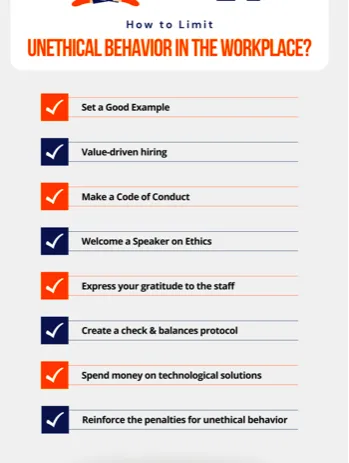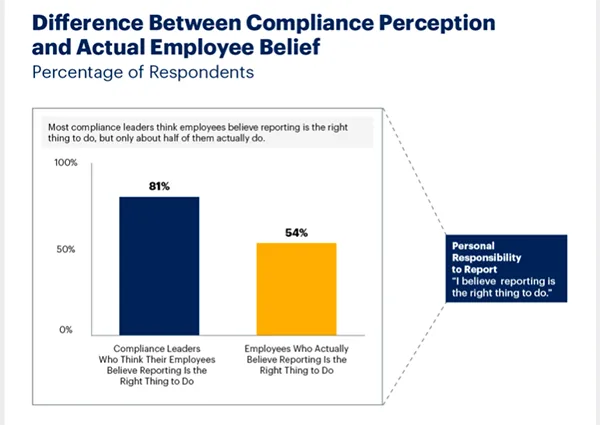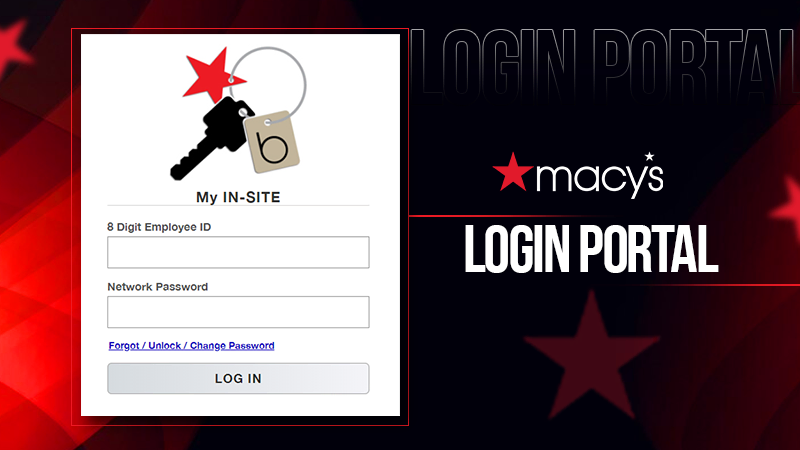The Importance Of Ethics Training: A Quick Guide
“Work for a cause, not for applause“
Achieving business success is teamwork between management and employees. Holding an organization together are the values that protect and promote a healthy workplace environment.
These values or business ethics are more than just a code of conduct policies. They are the pillars that need careful assessment for a professional and moral balance.
It is also practical business sense that having a strong office ethos makes the employees want to work for a reputable company. This can be achieved by ethics training courses that help communicate and share responsibility equally.
This article will be your guide to understanding the importance of ethics training to uphold integrity and respect in the workplace.
What Are Workplace Ethics?
Meeting different people at an office may sometimes lead to conflict of interest in terms of culture and behavior. It impacts the productivity of everyone, ultimately harming the business.
Workplace ethics are streamlined policies that provide equal opportunity for every employee to learn and progress. It also fosters a positive work environment through various team-building methods.
It is relevant to give helpful ethics training to employees to understand the principles of a company. This initiative builds a collaborative and inclusive work environment.
DO YOU KNOW?
91% of workers regard work ethics and integrity as critical to job security.
7 Benefits Of Ethics Training
The importance of ethics training cannot be neglected in a professional environment. Equally relevant is that the principles of a company should align with the expectations of the workforce.
Following are the benefits of ethics training for improving professional conduct.
Improved Employee Engagement
Every member can work comfortably when there is trust-based learning and enough space to grow. When employees are treated equally, without any bias, it builds trust in the company.
Though it looks simple, miscommunication may result in conflicts of interest. Training in office conduct promotes professional behavior and improves worker engagement.
Stronger Collaboration
Improving workplace connections is more than just about networking or working with like-minded people. With different levels of employees in a company, it is significant to foster a work environment that initiates collaborative activities.
Every employee should be given equal opportunity to learn and progress by setting regular evaluations. Time management and minimizing distractions are other areas that a good ethical training program integrates.

Inspiring Leadership Models
Employees look up to a manager or a leader whose actions imitate their expectations. An inspiring leader not only follows the code of conduct but also takes the initiative to understand employee well-being.
This is an invaluable skill that is reflected in many successful entrepreneurs. However, with the changing landscape of startups and working-from-home opportunities, it has become necessary to conduct training sessions for lawful practices and secure business information.
Increased Professional Value
In a safe work environment, there is an increase in the productivity and efficiency of workers. From the top management to the delivery person, there is a better understanding of professional values.
It includes managing individual work without distracting others but also being open to suggestions. In such a workplace, there is a higher motivational level which helps a company grow stronger.
Reduces Unethical Behavior And Practices

There are numerous reasons that an employee’s behavior is considered unethical which could be related to their personal habits impacting office work. It is relevant to take disciplinary action and that could vary from one company to another.
This is where ethical training programs are most beneficial as they help align business principles with the expectations of an employee.
Recognition of hard work by providing monthly or annual awards is a great way to appreciate and encourage employees.
Improves Organizational Reputation
The impact of a healthy workplace also affects employee behavior and improves the reputation of an organization. It is a rippling effect that causes every worker to work as a team with enthusiasm.
Customers and stakeholders also like to invest in a company with a respectable business profile. The workers provide correct information about a company’s quality of product and therefore, customer retention becomes easier.
Take a look at the graph below that shows the difference in perspective between leaders and employees about reporting an unethical issue.

Overcome Challenges By Timely Reporting
Empowering employees to raise ethical concerns is equally challenging because of differing comfort levels. Every person who is committed to working for a company may or may not be honest.
The digression comes when the moral responsibility of a worker conflicts with professional requirements. In some cases, disciplinary action is necessary for abusive or bad habits.
Even more complex is failing to report the concern to the right manager at an appropriate time. This requires a sensitive approach towards the workers which through ethical training can be dealt with professionally.
Final Thought
Workplace ethics training has become a necessary part of a growing business. Neglecting it not just harms the company’s reputation and lowers profits but it impacts an employee’s well-being.
Being a responsible and inspiring leader is showcased through actions and initiatives. Assisting managers in their roles is the ethics training that brings clarity of professional conduct building a strong value-based workspace.
Frequently Asked Questions (FAQs)
Ans: The basic office codes of conduct are being respectful, punctuality, honesty and transparency, collaboration and teamwork, maintaining integrity, and displaying consistent progress.
Ans: Employees, as well as managers both, benefit from ethics training as it clarifies the channels of communication and fosters teamwork. Moreover, it also results in employee engagement, reduction in unethical behavior, inspiring leadership models, and timely reporting of illegal conduct.
Ans: An ethics training program helps employees understand the company’s core values and professional expectations. It is conducted through e-learning elements and video modules.
Spark Driver Login Guide 2024: Learn How to…
Unlock the Simplest Way to Access LaSRS Login…
My Insite – Access Your Macy’s My InSite…
Closing the Gender Pay Gap in Tech
Positives and Negatives of Using Recruitment Agencies: Should…





